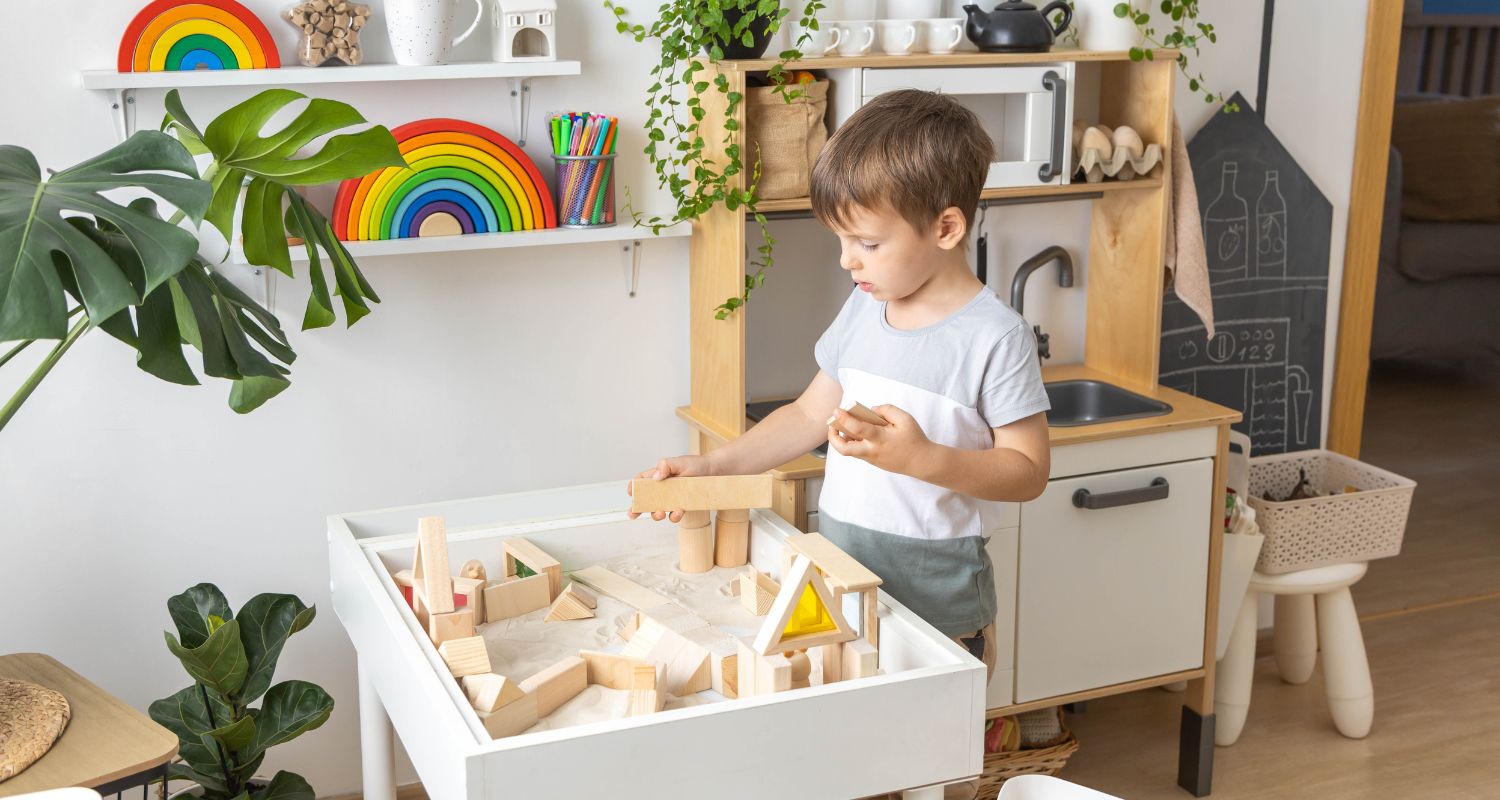From eating to dressing up, it’s just incredible to see our little ones trying to do things by themselves. This helps them build confidence and independence. That’s why so many mums are interested in applying Montessori concepts at home.
Montessori education has gained popularity for its child-centered approach that emphasizes independence, hands-on learning, and respect for each child’s unique development. While Montessori schools offer a structured environment that follows Maria Montessori’s principles, you can also incorporate these concepts into your home life to support your child’s growth and learning.
Here are some simple ways to apply Montessori principles at home:
1. Create an Environment of Independence
Designate accessible spaces: Arrange your home to be easily navigable for your child. Place toys, books, and other materials on low shelves where your child can reach them independently.
Child-sized furniture: Invest in child-sized tables, chairs, and utensils to encourage autonomy during meal times and other activities.
Offer choices: Allow your child to make choices whenever possible, such as selecting clothes to wear or deciding what snack to eat.
2. Foster a Love for Learning
Follow your child’s interests: Pay attention to your child’s interests and provide materials and activities that align with their passions. Whether it’s exploring nature, painting, or playing with puzzles, support their curiosity.
Encourage exploration: Provide open-ended toys and materials that inspire creativity and problem-solving. Items like blocks, play dough, and art supplies allow children to explore and experiment at their own pace.
3. Embrace Practical Life Skills
Involve your child in daily tasks: Encourage your child to participate in everyday activities such as cooking, cleaning, and gardening. These tasks not only teach practical skills but also promote confidence and independence.
Teach self-care routines: Guide your child in learning self-care activities like dressing themselves, brushing their teeth, and washing their hands. These skills lay the foundation for independence and self-reliance.
4. Nurture Respect and Empathy
Model kindness and respect: Demonstrate respectful communication and empathy in your interactions with your child and others. Use gentle language and validate your child’s feelings to cultivate a nurturing environment.
Foster a sense of community: Engage your child in acts of kindness and encourage them to contribute to the well-being of others. Simple gestures like sharing toys or helping a family member can instill a sense of empathy and social responsibility.
5. Create a Calm and Orderly Space
Establish routines: Establishing predictable routines helps children feel secure and confident. Create consistent daily rhythms for meals, naps, and bedtime to provide structure and stability.
Declutter and simplify: Minimize clutter and create a peaceful atmosphere in your home. Rotate toys regularly to prevent overwhelm and promote focused play.
As you embark on your journey of implementing Montessori concepts at home, remember that it’s not about achieving perfection but rather embracing the process of learning and growing together. Just like Maria Montessori observed children in their natural environments, take the time to observe and listen to your child’s cues, interests, and needs.
As you create an environment that nurtures independence, fosters a love for learning, and promotes respect and empathy, cherish the small moments of discovery and connection with your child. Whether it’s baking together in the kitchen, exploring nature on a backyard scavenger hunt, or simply sharing a quiet moment of reflection, these experiences lay the foundation for a lifelong journey of discovery and growth.
Until next time,
Tania xx

